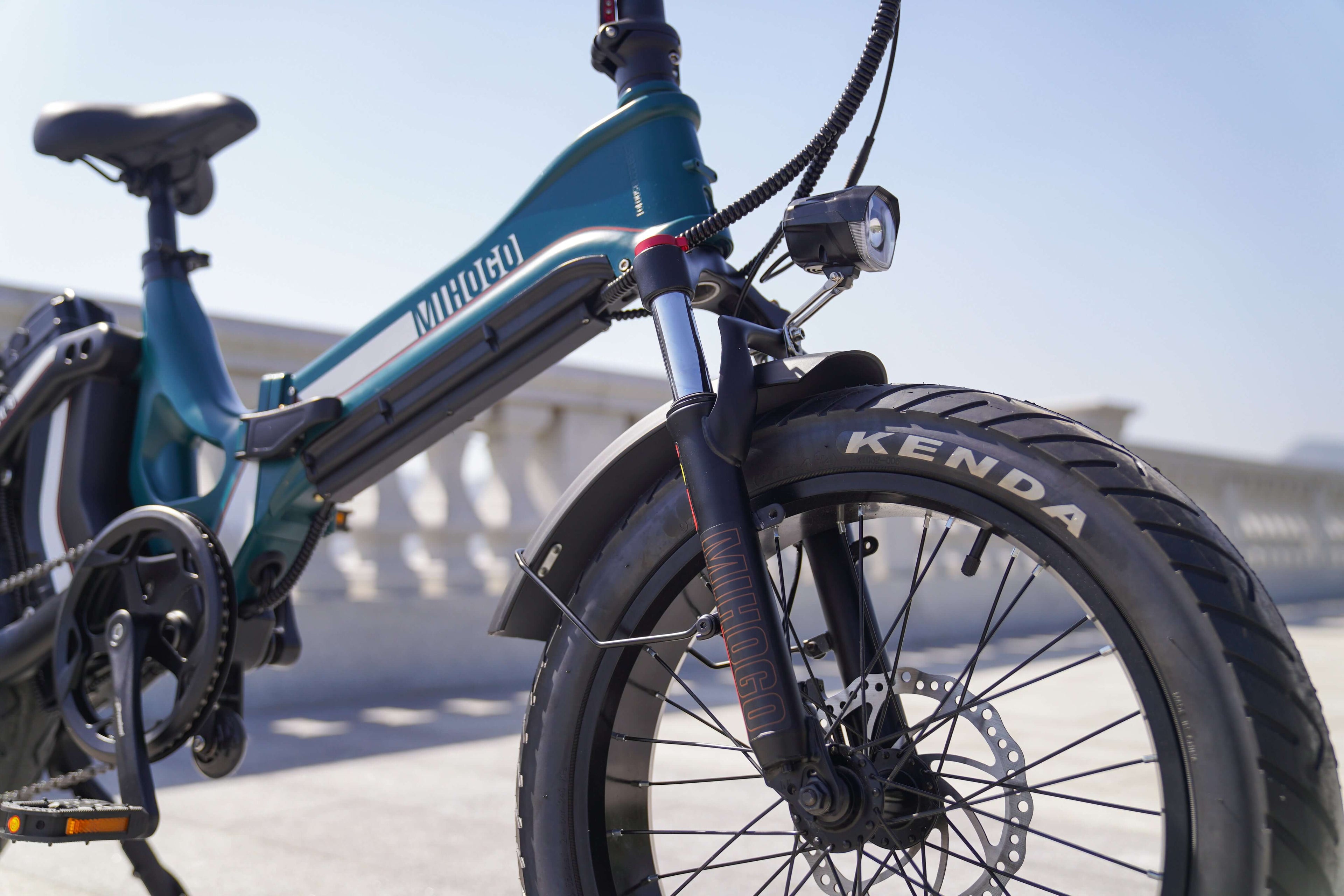Understanding E-bike Battery Repair in 2025
What Does Battery Repair Actually Mean?
Repairing an ebike battery usually restores much of its original performance, allowing you to extend its lifespan and avoid purchasing another. Battery repair typically involves:
- Cell Replacement: Swapping out degraded lithium-ion cells
- BMS Repair: Fixing the Battery Management System
- Connector Restoration: Replacing damaged charging ports
- Capacity Recovery: Restoring lost battery capacity
The Current Industry Controversy
The e-bike industry faces a complex situation regarding battery repairs. With all the controversy over E-bike batteries and the possible danger they can pose, I'm wondering if rebuilding batteries is going to continue to be a possibility. There are calls for all batteries to be UL approved.
Safety Standards Impact: UL 2271 and UL 2849 certification requirements are becoming mandatory in many jurisdictions, with New York City requiring all e-bike batteries to be UL certified by 2025.
Mihogo E-bike Battery Specifications and Longevity
Our Current Models and Battery Life
Understanding your specific Mihogo e-bike battery is essential before considering repair options:
Mihogo Mini ($719.00)
- Typical Lifespan: 500-800 charge cycles
- Expected Duration: 3-4 years with proper care
- Repair Potential: High compatibility with standard repair services
Mihogo Air Max ($1,680.00)
- Advanced Battery Chemistry: Enhanced longevity design
- Expected Duration: 4-5 years with optimal maintenance
- Repair Considerations: Professional assessment recommended
MIHOGO ONE Utility EBIKE ($1,680.00)
- Heavy-Duty Battery: Built for extended use
- Expected Duration: 4-6 years depending on load factors
- Repair Options: Commercial repair services available
MIHOGO RX 2.4 ($1,080.00)
- Balanced Performance: Standard lithium-ion configuration
- Expected Duration: 3-5 years with regular maintenance
- Repair Feasibility: Good candidate for professional rebuilding
Battery Repair Costs and Considerations
Professional Repair Pricing in 2025
Rebuilding an ebike battery usually ranges between $300 and $800. This cost depends on several critical factors. Battery type plays an integral role; lithium-ion batteries generally cost more due to advanced technologies and materials.
Typical Repair Cost Structure:
- Evaluation Fee: $55-75
- Labor Costs: $100-170 (depending on battery wattage)
- Cell Replacement: $150-400
- Total Range: $300-800 for complete rebuild
Cost-Benefit Analysis for Mihogo Owners
When Repair Makes Sense:
- Battery is 2-4 years old
- Only experiencing 20-40% capacity loss
- Physical case and BMS are intact
- Repair cost is less than 60% of new battery price
When Replacement is Better:
- Battery is over 5 years old
- Multiple system failures
- UL certification requirements for your area
- Repair exceeds 70% of replacement cost
Safety Standards and Certification Requirements
2025 UL Certification Mandates
UL certified ebike battery standards are crucial in 2025. Learn about UL 2271 and 2849 certifications, safety features. Major cities are implementing strict requirements:
New York City: NYC mandates that batteries must meet UL 2271 without alternatives California: Accepts UL 2849 or EN 15194 compliance Federal Guidelines: CPSC encourages UL standard compliance
Impact on Battery Repairs
To repair batteries means to change the certified and tested state of the manufacturer, meaning that safety-relevant features might have been broken during the process – think about the water-tight seal or the connections of the cells.
Key Concerns:
- Warranty Voidance: Repairs may invalidate UL certification
- Insurance Issues: Modified batteries may not be covered
- Legal Liability: Non-certified batteries face restrictions
Extending Your Mihogo Battery Lifespan
The 80/20 Charging Rule
The 80/20 Rule: For daily use, try to keep your battery's charge between 20% and 80%. Consistently charging to 100% and draining to 0% puts more stress on the cells.
Best Practices for Mihogo Owners:
- Charge regularly but unplug once complete
- Avoid deep discharges below 20%
- Store at 40-60% charge during extended periods
- Use original Mihogo chargers only
Temperature Management
Heat is particularly damaging to lithium-ion batteries and can permanently reduce their capacity. Cold weather temporarily reduces range but won't permanently damage the battery if handled properly.
Temperature Guidelines:
- Optimal Operating Range: 15-25°C (59-77°F)
- Storage Temperature: Cool, dry location
- Charging Temperature: Room temperature preferred
- Avoid: Direct sunlight, freezing conditions
Professional vs. DIY Battery Repair
Why Professional Service is Essential
Professional repair technicians are specially trained to respond safely and reliably when faced with such challenges. Their experts possess the know-how to identify any issue, whether with cells quickly, the management system, or anything else affecting battery operation.
Professional Advantages:
- Safety Expertise: Proper handling of lithium-ion cells
- Specialized Tools: Professional testing equipment
- Quality Parts: Samsung, LG, Panasonic cells only
- Warranty Coverage: Service guarantees included
DIY Repair Risks
Repairing your electric bike battery yourself may seem like a quick and cost-effective solution, but there are considerable risks involved. Electric bike batteries contain complex components and can present dangers such as short circuits or even fire hazards if not handled correctly.
Major Safety Concerns:
- Fire Risk: Lithium-ion battery thermal runaway
- Chemical Exposure: Hazardous battery electrolytes
- Electrical Shock: High-voltage system dangers
- Warranty Loss: Voided manufacturer guarantees
When to Consider Battery Replacement
Performance Indicators
A big sign your battery needs replacing is less range. If your bike doesn't go as far on a full charge, the battery might be wearing out. This happens naturally as the battery gets older.
Replacement Signals:
- Range Reduction: 40% or more capacity loss
- Charging Issues: Won't hold charge or charge completely
- Physical Damage: Cracks, swelling, corrosion
- Age Factor: Over 5 years or 1000+ cycles
Choosing New Mihogo Batteries
For optimal performance and warranty protection, always select genuine Mihogo replacement batteries:
- Guaranteed Compatibility with your specific model
- UL Certification for safety compliance
- Manufacturer Warranty for peace of mind
- Technical Support from Mihogo specialists
Future of E-bike Battery Technology
2025 Battery Innovations
Solid-State Batteries: These batteries hold 50% more energy than regular lithium-ion ones and represent the next generation of e-bike power systems.
Emerging Technologies:
- Solid-state batteries: Enhanced energy density
- Smart BMS systems: AI-powered optimization
- Fast-charging capabilities: Reduced downtime
- Sustainable materials: Eco-friendly manufacturing
Recycling and Sustainability
EU rules state that 'minimum levels of recovered cobalt (16%), lead (85%), lithium (6%) and nickel (6%) from manufacturing and consumer waste must be reused in new batteries'.
The industry is moving toward:
- 95% material recovery from lithium-ion batteries
- Circular economy practices in battery manufacturing
- Responsible disposal programs through manufacturers
- Battery-as-a-Service models for fleet applications
Regional Considerations and Regulations
United States Requirements
Different states have varying approaches to battery safety:
- California: Progressive standards with multiple options
- New York: Strict UL certification requirements
- Federal Level: CPSC guidance and recommendations
International Standards
European Markets: EN 15194 is the CE standard used for e-bikes in Europe. EN standards are generally not accepted in the US, although it should be remembered California does currently allow compliance to EN 15194.
Global Trends: Movement toward unified safety standards and certification requirements worldwide.
Making the Right Decision for Your Mihogo
Repair vs. Replace Decision Matrix
Choose Professional Repair When:
- Battery is 2-4 years old
- 60-80% original capacity remains
- No UL certification requirements in your area
- Repair cost under $400
Choose Replacement When:
- Battery over 5 years old
- Under 50% original capacity
- UL certification required locally
- Multiple system failures present
Maximizing Your Investment
Long-term Strategy:
- Proper Maintenance: Follow 80/20 charging rule
- Environmental Care: Store in optimal conditions
- Professional Service: Regular check-ups extend life
- Stay Informed: Monitor local certification requirements
Conclusion: Smart Battery Management for Mihogo Owners
The future of e-bike battery repair depends largely on evolving safety standards and certification requirements. While professional repair services can extend battery life economically, the growing emphasis on UL certification may limit repair options in many jurisdictions.
For Mihogo e-bike owners, the key is proactive battery care: proper charging habits, temperature management, and regular maintenance will maximize your battery's lifespan and delay the need for repair or replacement. When the time comes, weigh repair costs against replacement benefits while considering local safety regulations.
Whether you choose repair, rebuilding, or replacement, prioritize safety-certified options that maintain your Mihogo e-bike's performance, reliability, and legal compliance. Your battery investment today shapes your riding experience for years to come.






